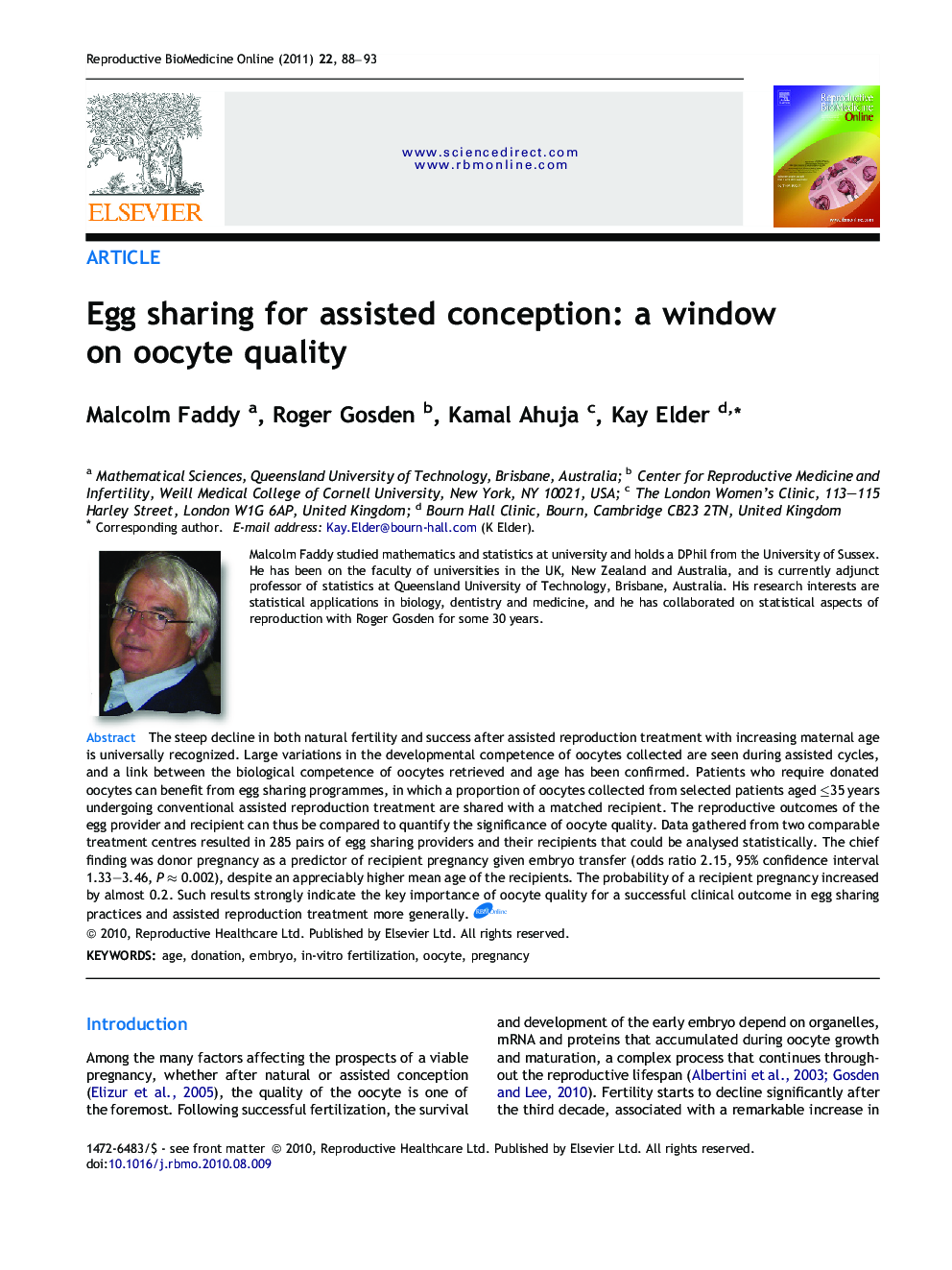| کد مقاله | کد نشریه | سال انتشار | مقاله انگلیسی | نسخه تمام متن |
|---|---|---|---|---|
| 3971815 | 1256779 | 2011 | 6 صفحه PDF | دانلود رایگان |

The steep decline in both natural fertility and success after assisted reproduction treatment with increasing maternal age is universally recognized. Large variations in the developmental competence of oocytes collected are seen during assisted cycles, and a link between the biological competence of oocytes retrieved and age has been confirmed. Patients who require donated oocytes can benefit from egg sharing programmes, in which a proportion of oocytes collected from selected patients aged ⩽35 years undergoing conventional assisted reproduction treatment are shared with a matched recipient. The reproductive outcomes of the egg provider and recipient can thus be compared to quantify the significance of oocyte quality. Data gathered from two comparable treatment centres resulted in 285 pairs of egg sharing providers and their recipients that could be analysed statistically. The chief finding was donor pregnancy as a predictor of recipient pregnancy given embryo transfer (odds ratio 2.15, 95% confidence interval 1.33–3.46, P ≈ 0.002), despite an appreciably higher mean age of the recipients. The probability of a recipient pregnancy increased by almost 0.2. Such results strongly indicate the key importance of oocyte quality for a successful clinical outcome in egg sharing practices and assisted reproduction treatment more generally.Both natural fertility and success after assisted conception treatment are known to decline dramatically with increasing age. Oocytes collected during assisted reproduction cycles often show large variations in their ability to be fertilized and develop into viable embryos that will lead to a pregnancy after transfer, and a link between this biological competence and age has been confirmed. A major source of data lies in the study of egg donation programmes, in which oocytes retrieved from younger women are donated to recipients of an older age group. Egg sharing is a type of egg donation treatment in which a proportion of oocytes collected from selected patients aged ⩽35 years of age undergoing conventional assisted reproduction treatment are shared with a matched recipient whose ovaries are no longer able to produce viable oocytes. The treatment outcomes of the egg provider and recipient can thus be compared as an indicator of oocyte quality. In this study, data from two comparable treatment centres were combined to yield results regarding the treatment outcome for 285 pairs of egg sharing providers and their recipients. Statistical analysis revealed that when both donor and recipient achieved embryo transfer, a donor pregnancy significantly increased the chances of her recipient also achieving a pregnancy, despite the fact that the recipients were of an appreciably older age group. Such results strongly indicate that oocyte quality is of key importance for a successful clinical outcome in egg sharing practices and assisted reproduction treatment more generally.
Journal: Reproductive BioMedicine Online - Volume 22, Issue 1, January 2011, Pages 88–93